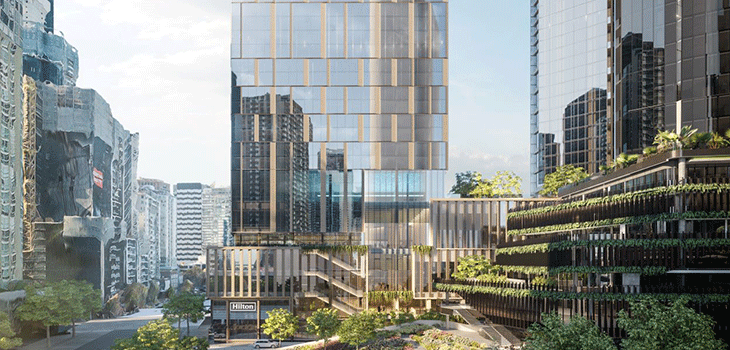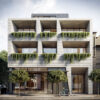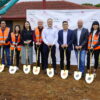2019 saw some creatively designed new and refurbished hotels open their doors to guests.
From the Ritz-Carlton Perth in the West, with the striking exterior and lobby adorned with 10,000 pieces of handpicked Kimberley sandstone, to the $40m revitalisation of Sydney’s venerable Sheraton on the Park in the East.
But what can we expect in 2020 and beyond?
We asked three of Australia’s leading practices for their views on the hot design trends likely to shape hotels of the future.
The common themes throughout are customer experience and sense of place.
Craig Baudin, Director at Fender Katsalidis Architects
A sense of place in a diverse world
“A fundamental shift has occurred in the idea of hotels as a “constant” when travelling, of a trusted brand that offers the same experience wherever you visit anywhere in the world. For some people this kind of experience offers predictability in a diverse world, but the new generation of travellers want their hotel experience to be unique, and deeply authentic to the place they are visiting. For the hotels that do this best, this means going beyond the obvious clichés that are associated with a particular city and offering an experience that is rooted in that neighbourhood.
In tandem with this shift to the authentic and local, many contemporary hotels are changing the way they interact with their neighbourhoods and the public. Hotels have become increasingly more welcoming spaces for non-guests, welcoming the city into their more public areas, and embracing the life and activity this brings to lobbies and public spaces.”
Email: cbaudin@fkaustralia.com
Callum Fraser, Founder & Architect at Elenberg Fraser
Curated experiences and the experience economy.
“Travel the world and the seven seas, everybody is looking for something. The shape of the future of hotels is human. In an experiential economy consumers will no longer book accommodation, they will book an experience.
When designing hotel environments we must view the world through the traveller’s eyes, examining the crucial moments of their experience to create sensory relationships beyond just the visual – how do your surroundings make you feel or behave? The future of hotel spaces are memorable, both evocative and provocative.
Technological integration is crucial in fostering this distinctly emotional connection. Seamless experiences from airport to accommodation, customization and continuous connectivity allows the traveller to transform the hotel environment to their whim. ”
Email: mail@elenbergfraser.com
Madeleine Joyce, Senior Associate at Architectus
“Customer experience will continue to play a key role in hotel design in 2020. In the past, we’ve seen how the curated experience of co-working has shaken up the way Workplace is designed and this approach is set to challenge hotel design.
Thoughtful design which combines comfort with impactful and memorable moments is imperative. Consumer expectations are higher than they’ve ever been and with the popularity of Airbnb, large hotel brands have had to adapt accordingly to create ‘home away from a home experiences’, something which boutique hotels have managed to capture more successfully.
For example, what type of coffee making facilities are offered in each room? Are there sufficient coat hangers? Are the pillows comfortable? We are more focused on the offerings which create our overall experience and this should flow through the design of every space, whether it’s the guest rooms, the lobby or the restaurant. The design needs to enhance the user experience and provide respite from everyday life.”

Email: Madeleine.Joyce@architectus.com.au
Point Polaris currently has more than 1,100 hotel rooms under management. This includes delivery of Melbourne’s largest new build hotel – Hilton Melbourne Square – for OSK Property, and Melbourne’s largest new dual-branded hotel at 539-545 Flinders Lane for The Ormond Group.










